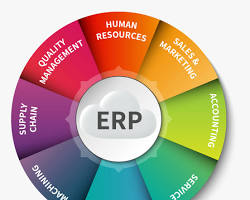
The African continent is a hotbed of innovation and entrepreneurial growth. However, many SMEs, the true engines of the economy, hit a glass ceiling: operational complexity. Managing inventory on Excel, tracking sales in notebooks, isolated accounting... these information silos hinder growth. Implementing an ERP (Enterprise Resource Planning) is not a luxury reserved for multinationals; it is a strategic investment to structure the company and prepare it for the next level.
1. Centralize to Steer Better
The first and most immediate benefit of an ERP is the creation of a **single source of truth**. Instead of having scattered data, all departments (sales, purchasing, inventory, production, accounting) work on the same real-time information base.
- Total Visibility: The manager can see the status of inventory, sales levels, and available cash flow with a single click. This allows for decisions based on reliable data, not intuition.
- Concrete Example: A distribution company in Cotonou was using three different systems. After implementing Odoo, it reduced its stockouts by 40% in just six months because salespeople and warehouse managers were seeing the same real-time information.
2. Automate to Gain Efficiency
Time is the most precious resource for an SME. An ERP automates repetitive, low-value-added tasks, freeing up teams to focus on strategy and customer relations.
According to one study, SMEs can improve their productivity by nearly 30% after implementing an ERP through process automation.
3. Adapt to Local Realities with Flexible Solutions
The monolithic and expensive ERPs of the past are no longer the only option. Modern, open-source solutions like Odoo offer incredible flexibility, particularly suited to the African context.
- Low Entry Cost: The open-source model allows starting with a controlled budget and adding modules as the business grows.
- Adaptability: A local integrator like RMS International Group can adapt the solution to the specific regulatory requirements (taxation, etc.) and business processes of each country.
- Mobile Accessibility: On a continent where mobile is king, being able to access one's ERP from a smartphone or tablet is a major competitive advantage, especially for teams in the field.
Adopting an ERP is not just an IT project; it's a structural decision that prepares for the future. It's the tool that allows an ambitious SME to move from manual management to an industrial-scale operation, ready for local and international growth. Contact us for a diagnosis of your processes.
